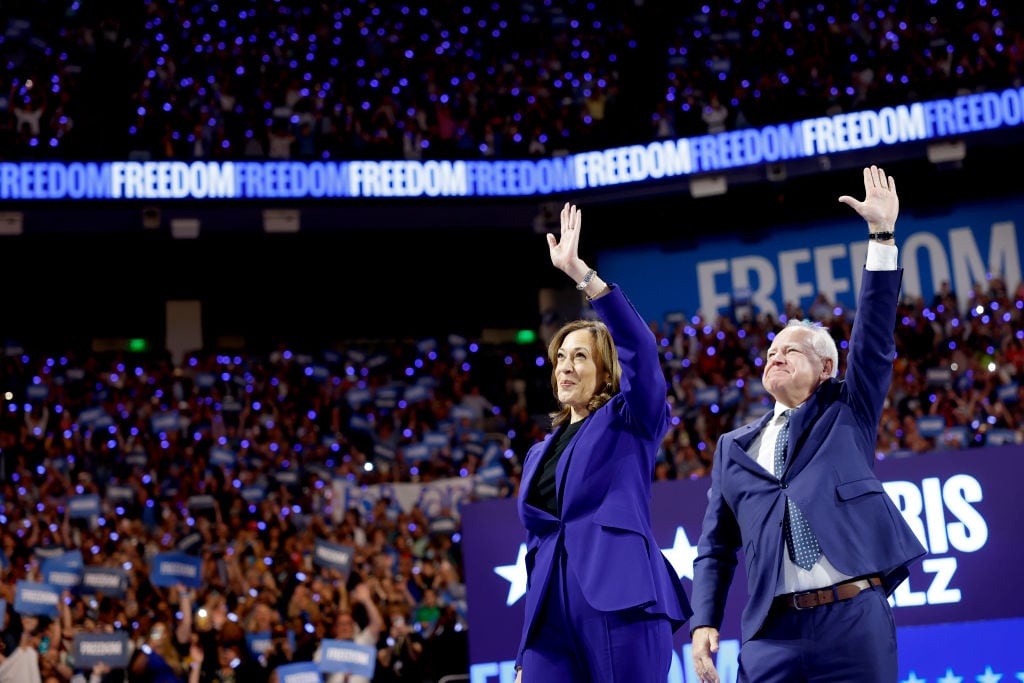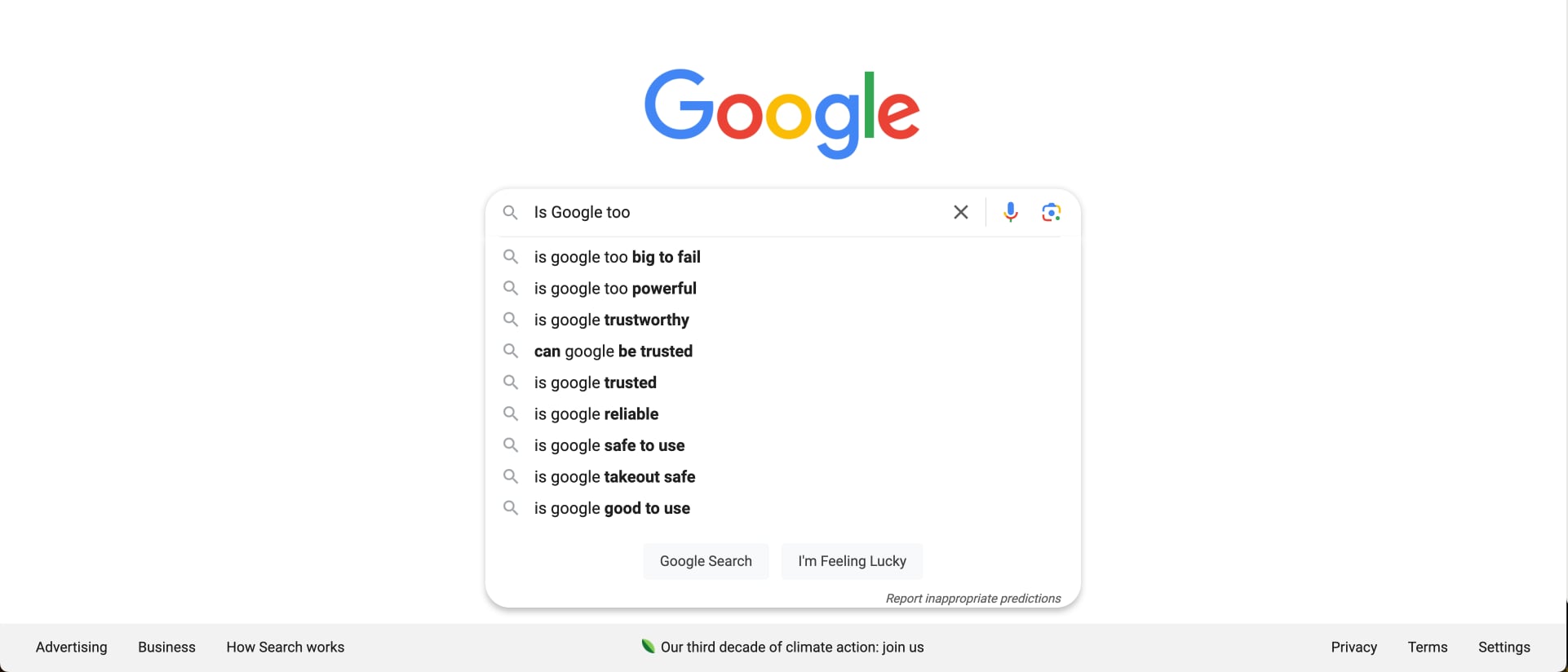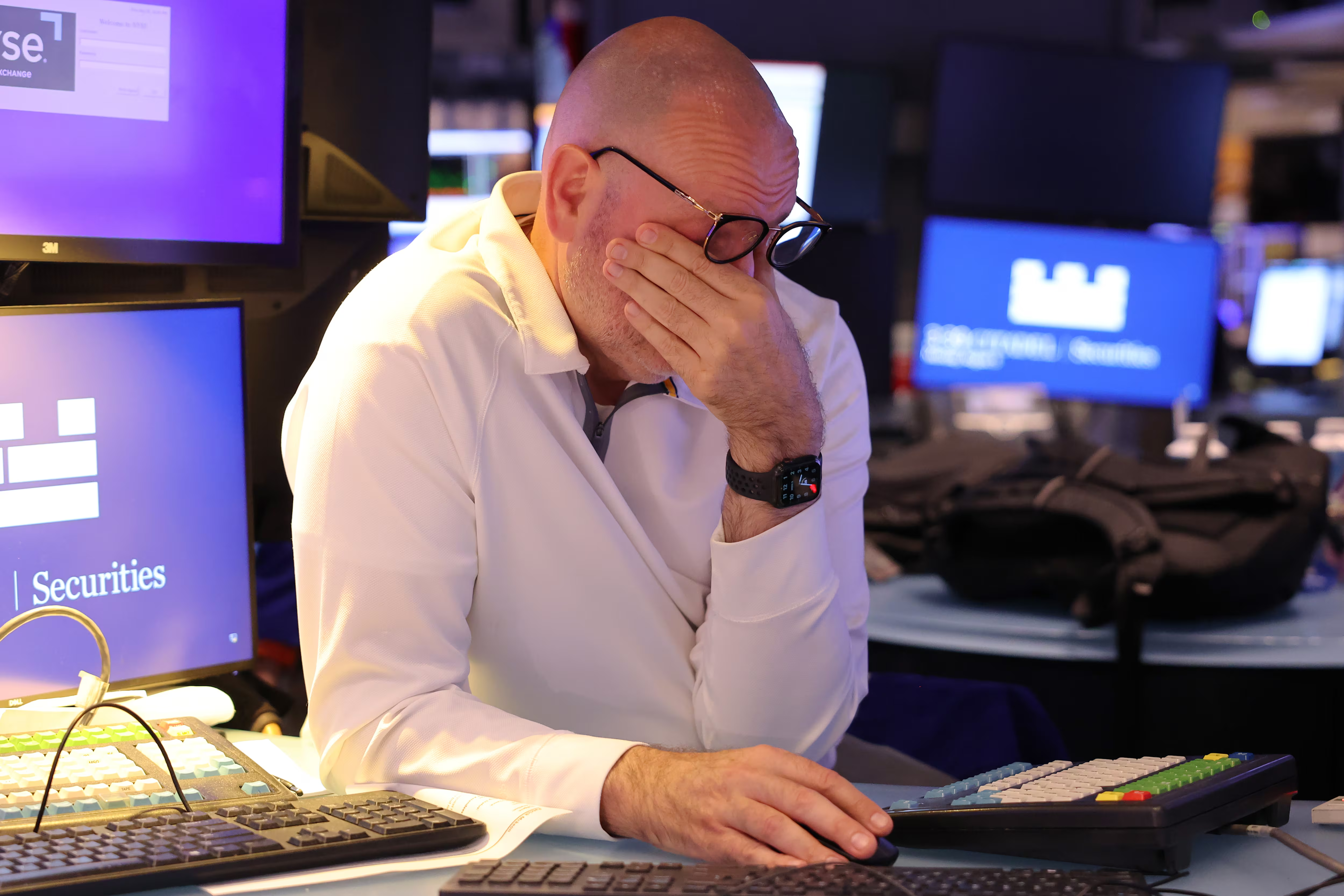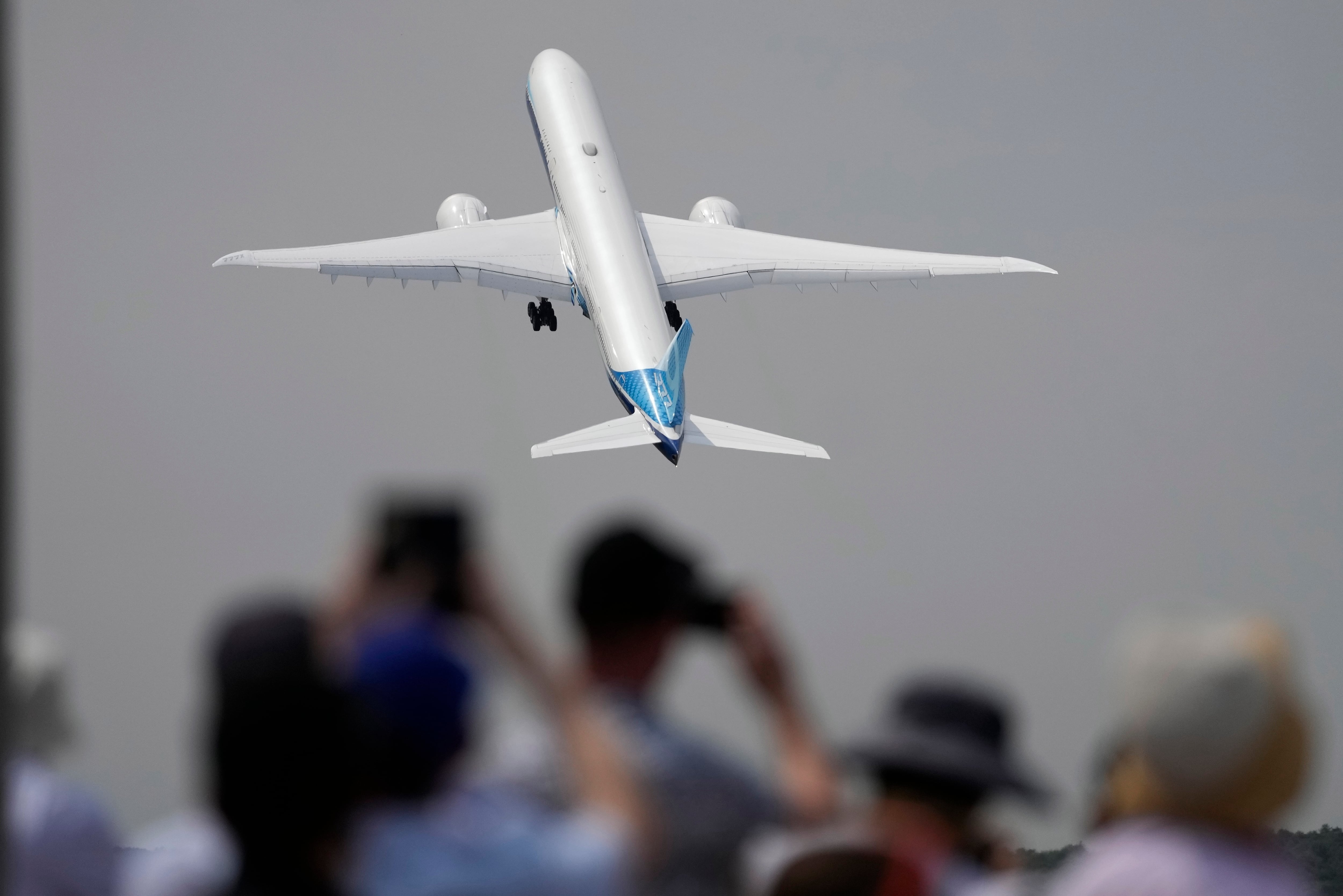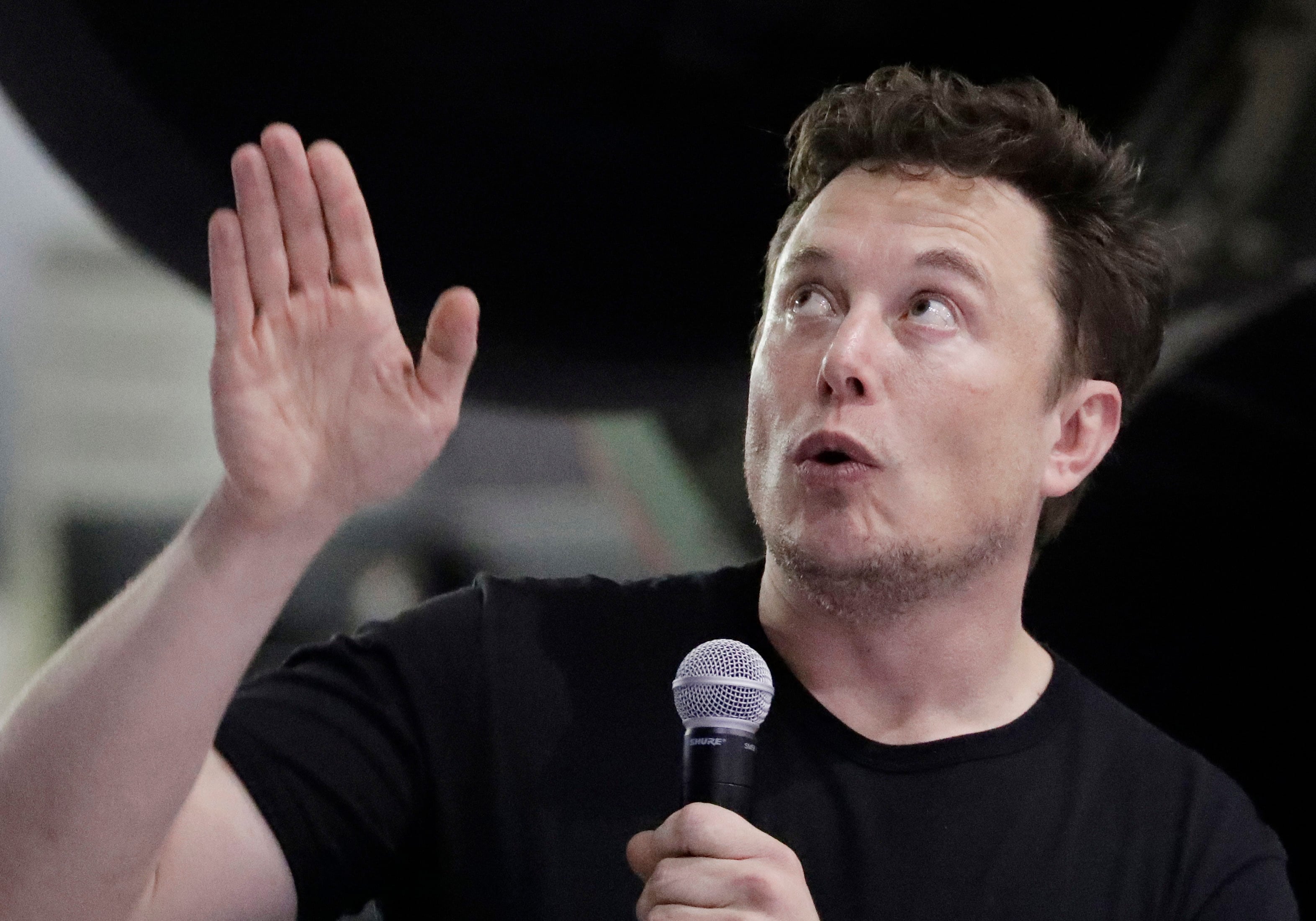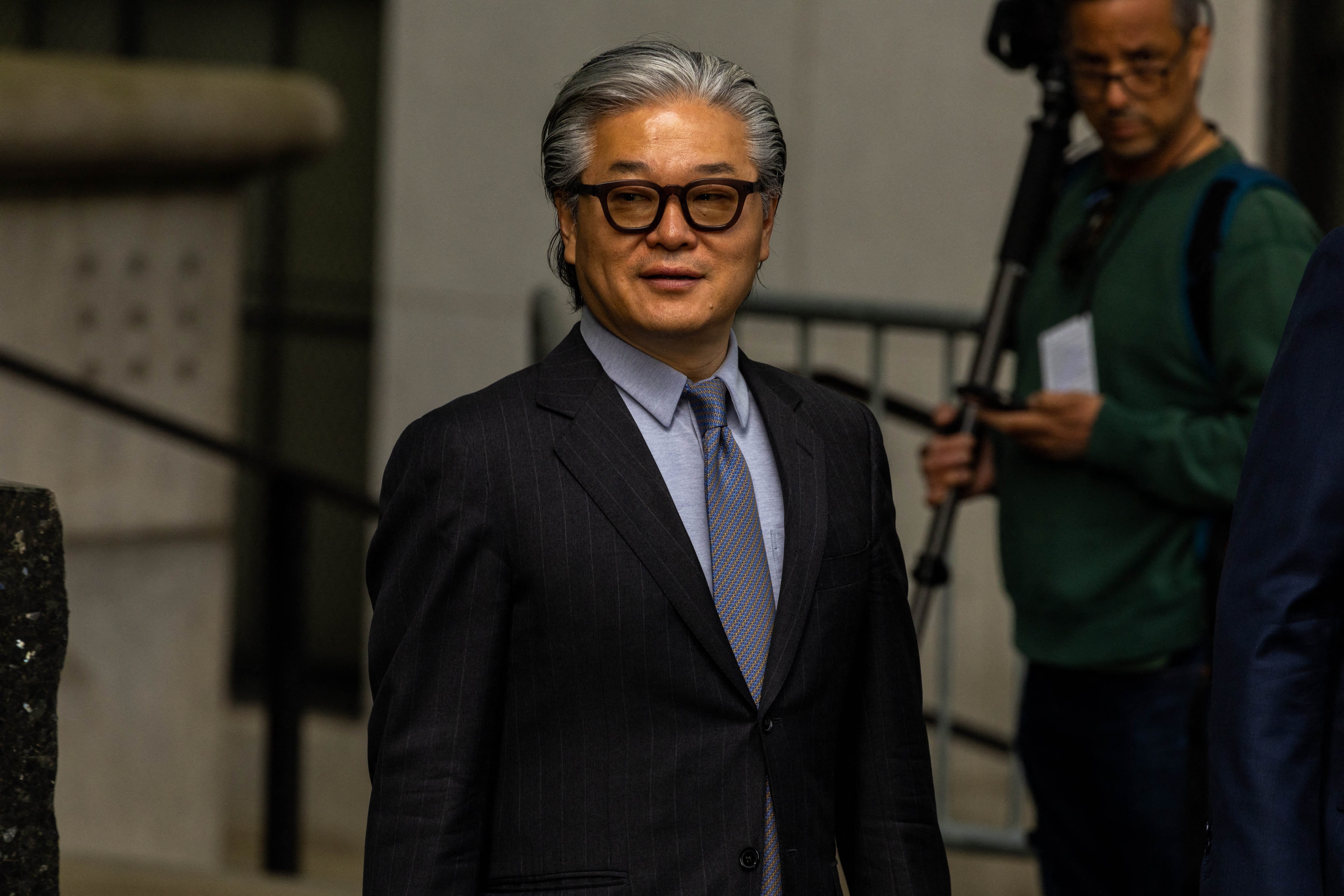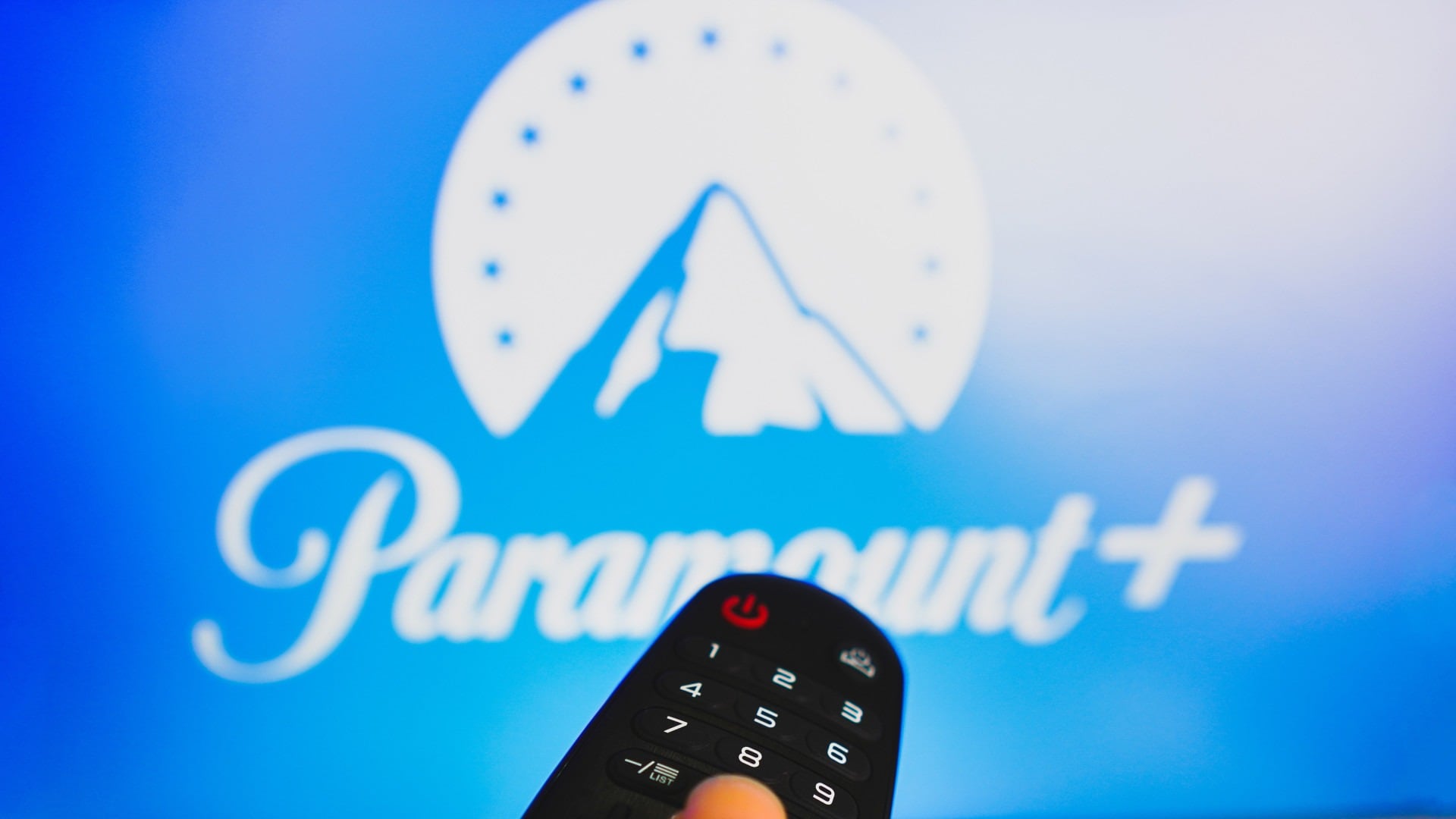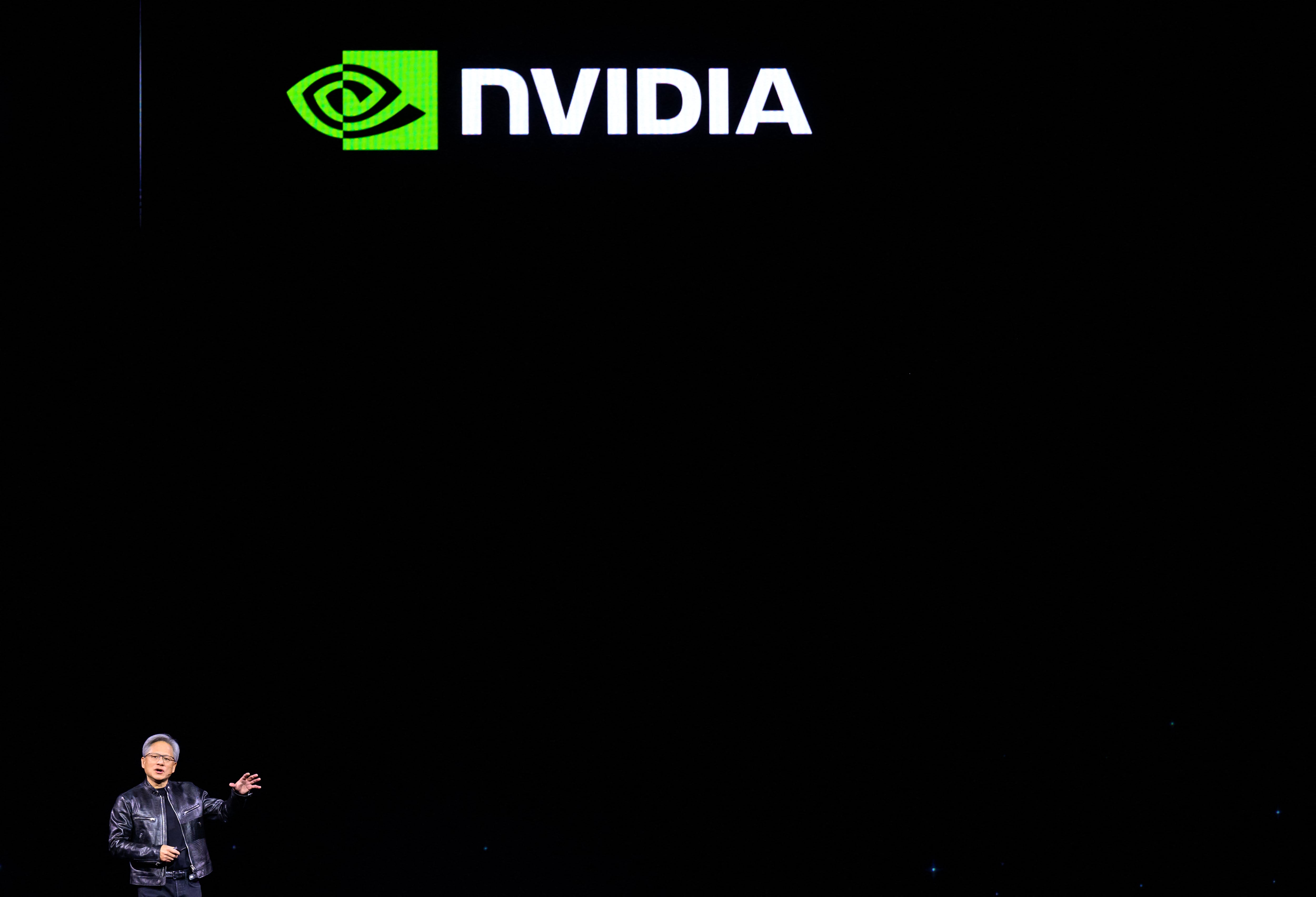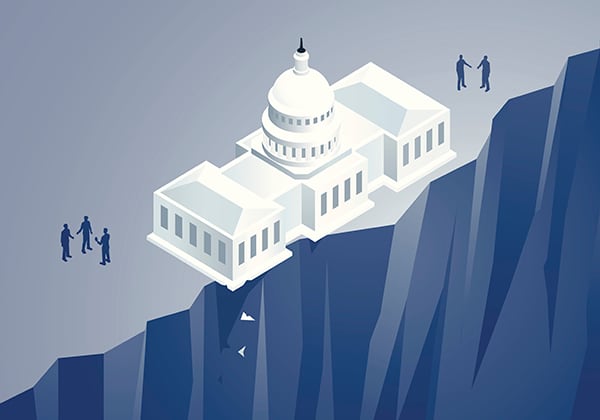Chipped Away
Even AI chipmakers can’t avoid the law of gravity: What goes up, must—eventually—come down. The AI revolution may be delayed, for reasons ranging from power costs to the threat of a trade war with China, plus hints from the Trump campaign that under a second Trump presidency the U.S. might not defend Taiwan, where most of the world’s most valuable chips are manufactured.
In an interview with Bloomberg Businessweek published Tuesday, Trump was asked if he would defend Taiwan against an invasion by China. “I think, Taiwan should pay us for defense,” Trump replied. “You know, we’re no different than an insurance company. Taiwan doesn’t give us anything.”
On Thursday, chip stocks in Asia continued to tumble after a rough Wednesday for the U.S. tech market. Taiwan Semiconductor Manufacturing Co., the world’s largest contract chipmaker, lost more than 2% of its value, shedding about $52 billion in market value over two days, Reuters reports. Then, on Thursday, TSMC said it expects sales next quarter to be up 34% YoY, but shares closed up only a smidge.
Meanwhile, the Biden administration said that in an effort to keep top U.S. tech out of China’s hands, it’s considering activating the foreign direct product rule, which allows the U.S. to stop a product from being sold if it was made using American technology. That smacked ASML Holding—a Dutch firm that makes equipment for making chips, and whose shares fell nearly 8% on the news—as well as Asian tech firms, including South Korean memory chipmaker SK Hynix (down 3.6%) and Japan’s Tokyo Electron (down 8.75%).
So is the AI revolution over, or is it just delayed? Probably the latter: As the Economist reported, the five big tech firms—Alphabet, Amazon, Apple, Meta and Microsoft—are budgeting an estimated $400 billion for capital expenditures this year, and most of that is going to AI-related hardware and R&D.
That Blue Screen of Death
The Blue Screen of Death hit airlines, banks, and healthcare operations around the world on Friday as a cybersecurity update from Crowdstrike caused a global Microsoft outage. Airlines delayed more than 3,300 flights, and resorted to manual processing of passengers. Hospitals in the U.S. reported delaying surgeries and procedures. Other companies, including Visa and Amazon, also experienced outages.
The issue stemmed from an update by CrowdStrike designed to enhance security for Windows machines; instead, it inadvertently led to system crashes. Engineers at CrowdStrike developed and distributed a fix for affected systems, but it entails manual rebooting of each affected device in safe mode, which may take considerable time. Microsoft has recommended multiple reboots, possibly up to 15 times for some users, and for more savvy customers, the deletion of a specific problematic file.
While addressing the situation, CrowdStrike’s CEO George Kurtz acknowledged the mistake on Twitter, and his company’s stock was down a sharp 10% on the NASDAQ in light of the news. Crowdstrike is a cybersecurity firm that often gets involved in post-hack investigations and has seen rapid growth since its founding 13 years ago.
The Usual Suspects
- Elon’s world: Salt Lake City Tesla fan Blaine Raddon got the carmaker to change its policy and let him resell his Cybertruck, after he found it wouldn’t fit in his condo’s garage spot. That’s a sea change for Tesla, which frowns on resales. Raddon actually cleared a $2,000 profit on the $109,000 sale. Meanwhile, Elon says he’ll give Trump’s campaign $45 million a month through a PAC. Who says money can’t buy you love? And just in case the message didn’t get through, Musk says he’s moving X and SpaceX headquarters out of blue-state California and into red Texas, after California passed a law that bars schools from telling parents if their kids identify as gay or transgender. (Elon has a trans daughter who cut off contact with him in 2022.) Finally, Elon’s AI bot Grok is having trouble giving people the news: When Trump’s ear was grazed by an assassin’s bullet, Grok reported that Kamala Harris had been shot. The problem seems to be Grok aggregating news from X, and being unable to tell trolling or sarcasm from fact.
- Dimon in the rough? JPMorganChase CEO and chair Jamie Dimon, who’s been teasing his impending retirement for several years now, may have a soft landing, as Donald Trump tells Bloomberg Businessweek in an interview that Dimon is “someone that I could consider” for Treasury secretary. Trump may be ready to forgive and forget: In 2018 Dimon said he could beat Trump for president: “I’m as tough as he is, I’m smarter than he is,” Dimon said and, unable to resist a twisting the knife, added that his own wealth “wasn’t a gift from daddy.”
- No rate cuts yet: Fed chair Jerome Powell said that while Q2 inflation data does “add somewhat to confidence,” he wouldn’t be drawn on whether the Fed will lower rates at its policymakers meeting at the end of July.
- Prime Week is prime time for injuries: A report by a Bernie Sanders–led Senate committee shows Amazon workers are getting injured a whole lot more during Prime Week, which took place this week, with a reported 45 injuries per 100 workers, double the industry average. Amazon denies charges it’s underreporting injuries and says it’s on track to becoming one of the safest companies in the industries in which it operates.
- Google’s security blanket: Alphabet is in advanced talks to buy Wiz for $23 billion, the Wall Street Journal reported, citing people familiar with the talks. Wiz offers cybersecurity software for cloud computing, and as hacking incidents multiply, securing cloud platforms is vital for keeping hold of customers.
- Gold in sacks: Goldman Sachs does it again, posting profits of $3 billion in Q2, making money across nearly all its businesses and scaling back on plans to expand its main-street banking business, Marcus. Goldman shares are up 47% in the past year.
Same Same But Different
Every four years, the Republican Party comes out with a new (but not new) proposal to cut taxes: Lower them on the rich, raise costs for the poor. GOP contender Donald Trump has a new tax cut in mind that would be paid for in part by raising tariffs on imports. And who’d bear the cost of the tariffs? Lower-income consumers, says economist Kimberly Clausing, at the Peterson Institute for International Economics. Combining tax cuts and tariffs would increase income inequality substantially and “hurt the very voters that Trump is counting on to put him in the White House,” she told the New York Times. Trump apparently told Congressional leaders last week he wants to cut income taxes to zero. Trump is now promising a blanket 10% tariff on all imports, and a 60% tax on Chinese-made goods.
But companies tend to pass on the cost of tariffs to consumers in the form of higher prices, hitting lower-income households the hardest since they spend more of their income on goods. Income taxes affect wealthier people, since many low-income workers don’t earn enough to owe federal income taxes. Meanwhile, Trump trade aide Robert Lighthizer says that tariffs are not going send up prices or deepen the gap between rich and poor. In Lighthizer’s world, tariffs increase production and create high-paying manufacturing jobs, so, he says, “they are probably deflationary.” Probably!
Quick Hits
- The heat is on Amtrak: A New York Times study of Amtrak delays shows global warming is keeping passengers off the rails. Extreme weather events bogged down Amtrak trains for more than 4,010 hours from October 2022 through September 2023, the highest number of weather-related delays in at least 20 years.
- Where’s the beef? These are lean times for Beyond Meat, the makers of a plant-based meat substitute that tastes a lot like a burger. The Los Angeles–based company has yet to turn a profit, and after burning cash it’s looking at a sale of $1.1 billion in convertible bonds to stay afloat. The problem: There’s still not much of a market for fake meat. In the first quarter, revenue fell 18% YoY, to $75.6 million, and net loss hit $54.4 million, compared with a loss of $59 million the year before.
- Would Trump boost healthcare stocks? That’s what it looks like. Shares in a number of health-insurance stocks are outperforming the market amid hopes that Trump will ease regulations that keep both insurance prices down for consumers and profits down for insurers. Humana, a pure-play Medicaid insurer, for instance, was up 6.75% in the past five days, and 15% in the past month.
How Real Is Commercial Real Estate?
We’ve been here before. Back in 2008, the commercial real estate developers and owners way over-valued their buildings, and their debt became nearly worthless, precipitating the Great Recession. Now it looks like we may be back in the same hole, only this time the problem may not be fixable, because no one wants commercial office space—everyone’s WFH now.
What’s going on here? As The Wall Street Journal reports, a particular form of real estate debt, known as single-asset, single-borrower bonds, is starting to default. There are about $260 billion of these notes out on the market. Unlike most mortgage-backed securities—which pool the loans to a large number of properties in order to reduce the risk that any one failure will bring down the house—these bonds are used to finance individual deals, largely by private equity firms, which sell them to banks, insurers, pensions, and mutual funds.
With occupancy rates flat or falling, and interest rates still high, the rate of loans at or near default has nearly tripled over two years, hitting 8.7% in 2024, according to data from the CRE Finance Council trade group, the Journal reports. And just like in 2008, many of the endangered bonds got triple-A ratings from credit rating firms. The private-equity firms, which had already cashed out most of their investment with the bonds, have been abandoning near-vacant buildings and their debts, leaving bond holders with worthless notes.
In the past, banks often took possession of failed properties, holding on to them long enough to see the market bounce back, but with WFH the new standard, these buildings are likely to be permanently in the red, leaving banks unwilling to reclaim properties that have no future upside. Hello, 2008? “That’s my fear—that the large banks are going to say ‘You know what? We’re out,’” Lea Overby, head of commercial mortgage-backed securities research at Barclays, told the Journal.
Is Britain’s Inflation All Taylor Swift’s Fault?
That’s the contention of some UK economists, who note that her sold-out Eras tour pushed up hotel prices in several British cities earlier this summer, and could be one reason the Bank of England says it’s not cutting interest rates from 5.25%, which is about where the U.S. Federal Reserve has set rates—and which is the highest in Europe.
Britain’s Core Consumer Price Index, which excludes volatile energy and food prices, was forecast to fall to 3.4% in June but stayed stuck at 3.5%, the same as in May. Policymakers are more concerned about core CPI because it’s falling more slowly than the headline rate of inflation and is also higher than the regular CPI’s 2%, Morningstar economists report. They note that inflation in services is also a concern of British central bankers, remaining at 5.7% last month. That all makes an August 1 rate cut less likely, they say. Laura Suter, director of personal finance at AJ Bell, told the Independent newspaper that the Bank of England policymakers “may be cursing Taylor Swift,” noting that fans spending on hotel rooms and in restaurants during Eras tour is “likely to be one reason that prices rose in June.”
Get Big Business This Week in your inbox every week—and read it before everybody else! Sign up today.
Peter S. Green is a veteran reporter and editor who has spent more than two decades covering business and finance from Eastern Europe to New York City, and has worked for Bloomberg News, The New York Post, The New York Times and The Messenger. He lives in New York City and is always looking for the next big story.

